The Independent's journalism is supported by our readers. When you purchase through links on our site, we may earn commission.
Star Wars: The Force Awakens: Oscar-nominated editors talk deleted scenes, Rey, diversity, JJ Abrams and lens flares
Mary Jo Markey and Maryann Brandon also spoke about keeping the plot a secret and using those famous wipes
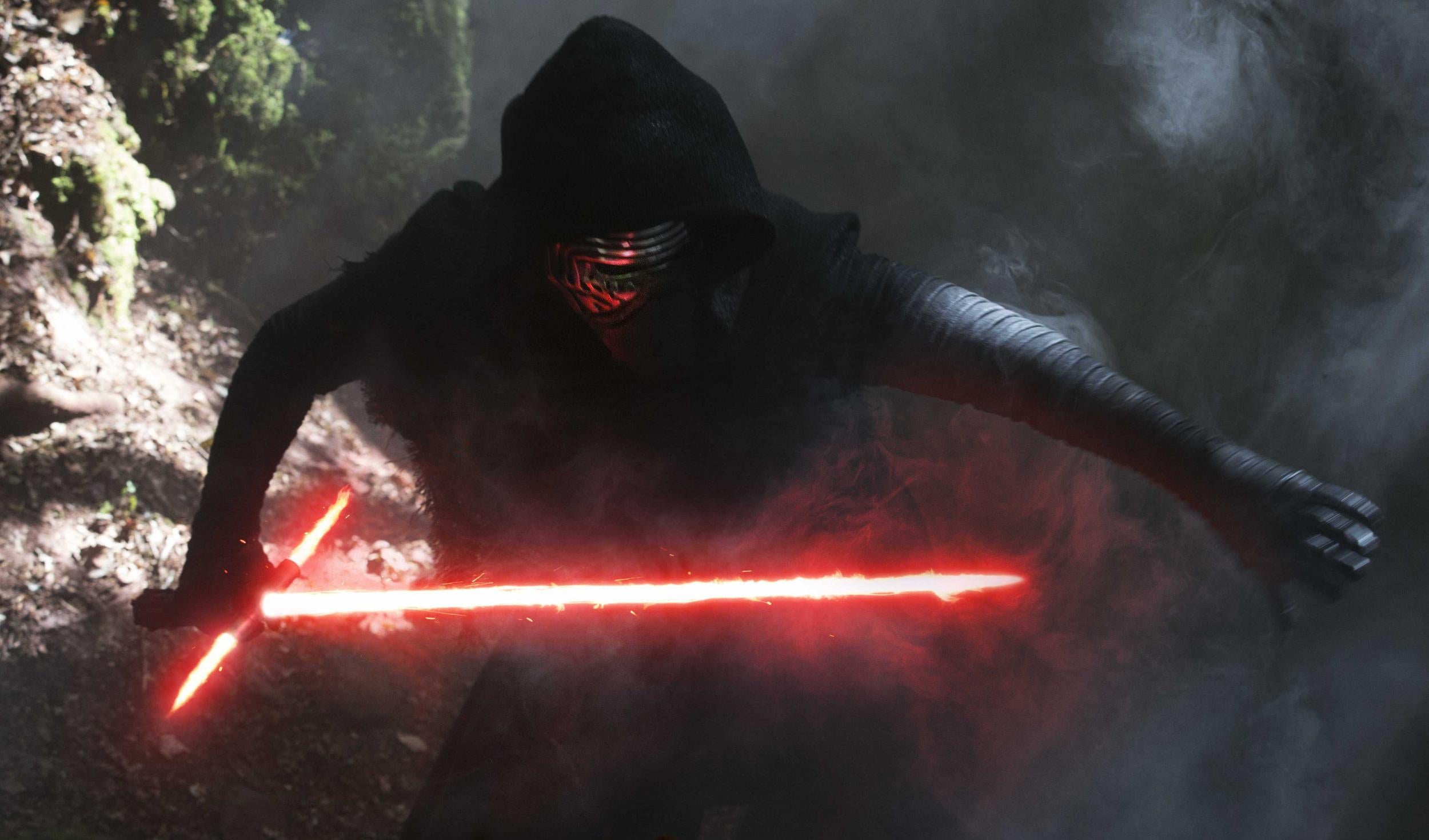
Your support helps us to tell the story
From reproductive rights to climate change to Big Tech, The Independent is on the ground when the story is developing. Whether it's investigating the financials of Elon Musk's pro-Trump PAC or producing our latest documentary, 'The A Word', which shines a light on the American women fighting for reproductive rights, we know how important it is to parse out the facts from the messaging.
At such a critical moment in US history, we need reporters on the ground. Your donation allows us to keep sending journalists to speak to both sides of the story.
The Independent is trusted by Americans across the entire political spectrum. And unlike many other quality news outlets, we choose not to lock Americans out of our reporting and analysis with paywalls. We believe quality journalism should be available to everyone, paid for by those who can afford it.
Your support makes all the difference.It has been a few months since the release of Star Wars: The Force Awakens and the hysteria has seemingly quietened down a little. Almost everyone has accepted that director JJ Abrams knocked it out of the park, and we’re all patiently awaiting Episode VIII.
However, JJ wasn’t the only one working hard behind the scenes. Umpteen cameramen, secondary units and writers were also working sleepless nights to get Disney’s monumental franchise up-and-running, not least of all Mary Jo Markey and Maryann Brandon, the film’s editors.
While promoting the editing software they used while making the film - Avid Media Composer - we managed to catch up with the Oscar-nominated pair to question them on everything Star Wars.
Here's a few takeaway points, and the full interview follows.
Firstly, they confirmed that the home release will feature seven scenes that didn’t make the final cut. Both Rey and Han Solo will feature in separate scenes.
Secondly, there has been much talk about how Rey suddenly gets her Force powers in the film. While we didn’t explicitly touch on the subject, Markey mentions how Rey is “using the force the whole time, she just doesn’t know it.” Read into that as you will.
Thirdly, Markey also revealed that one of the hardest scenes to get right was the one where R2D2 suddenly wakes up and reveals he has the completed map.
In the original script, that scene was a lot longer, and featured a lot more explanation as to where Luke is. It would have been interesting to see more dialogue at this stage, perhaps clearing up why R2 only just woke up at that exact moment.
The pair also commented on diversity behind the camera (“I do think that it is a problem, not just for women but for people of colour as well”), being able to use those famous Star Wars transitional wipes (“They were really fun to use”), keeping the plot secret (“Only a few people had the full script”) and JJ’s love of lens flares (“He’s done it once before and he feels like that is over”).
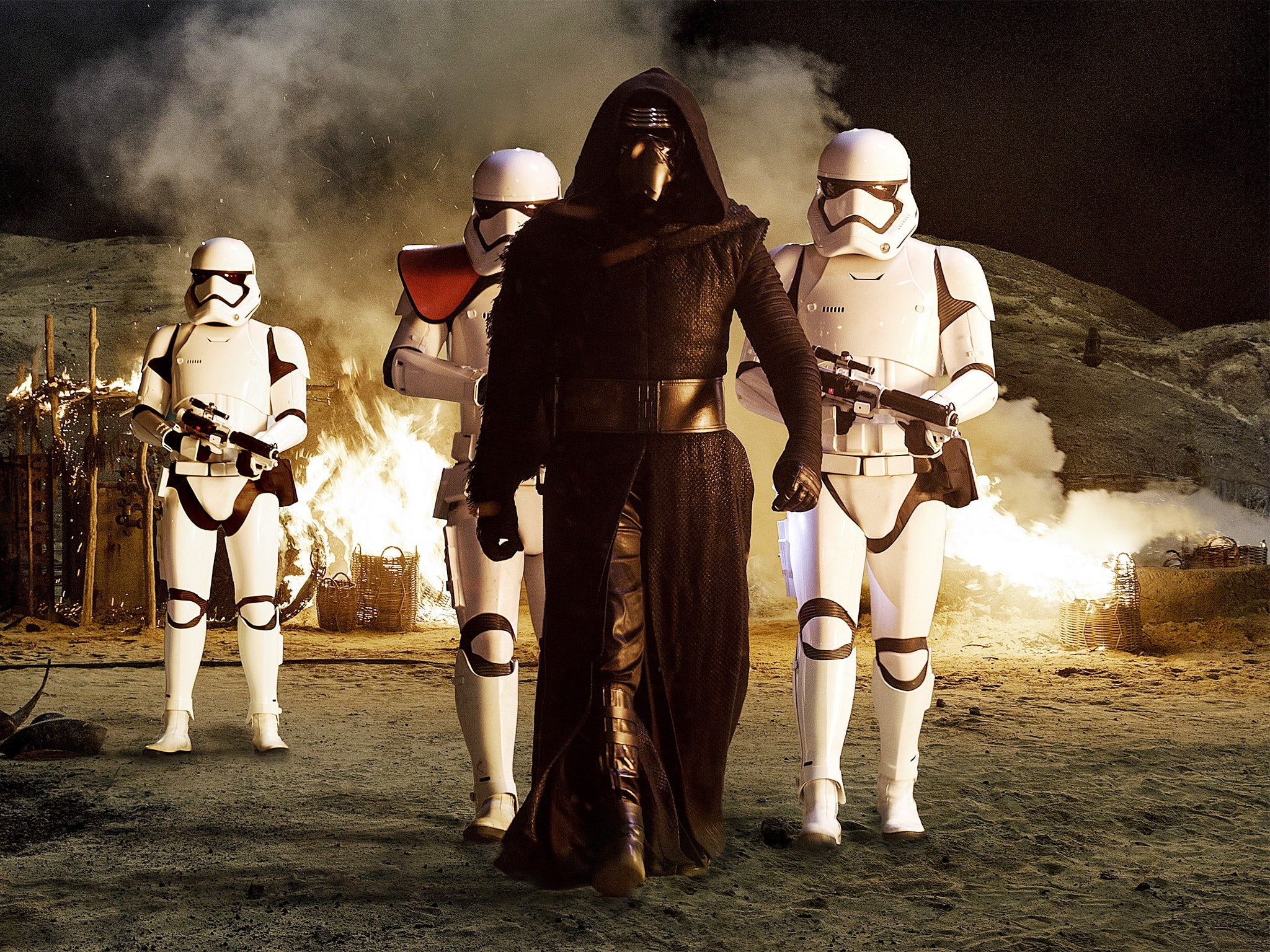
Did working on SW with JJ feel different to working on the other films you’ve worked together on?
MB: Obviously, it was very exciting - Star Wars comes with that whole history - but so did Star Trek, as did Mission (Impossible III), so we were well trained and ready to go considering we had done those already. But yeah, this one was truly special. People had a lot invested in it, JJ had an enormous amount invested in it. He wanted to use the old sounds and capture the new sounds. I think we all felt this was a really delicate but important thing to get out there in the right way.

Watch Apple TV+ free for 7 days
New subscribers only. £8.99/mo. after free trial. Plan auto-renews until cancelled

Watch Apple TV+ free for 7 days
New subscribers only. £8.99/mo. after free trial. Plan auto-renews until cancelled
MJ: JJ is such a fan himself, it was really important to him, and he had loved the films so much as a kid, and if I’m not mistaken, it was seeing that film that made him want to become a film director. He just wanted to make sure that sense of wonder and joy and thrill he felt as a kid, that the kids coming to see it now would be able to experience that again. Maybe lighting never strikes twice in the same place but I think we came pretty close.
Was it difficult to get JJ’s voice into the film?
MB: Whatever JJ does I think his voice is very loud and clear. He’s a masterful filmmaker. He will always do his own original take on everything, and I think that’s how you have to make films. You can’t try to imitate or repeat. You have to make your own thing, tell the story that is in your own heart. And I think, as editors, that's what we do as well. It is a great combination and works for us and has worked for us in the past.
With things like the famous Star Wars wipes, was it fun using those old themes while bringing in your own?
MB: It was fun using the wipes. I’m not a huge fan of that sort of thing, but the wipes were really fun to use. I think the question that was most asked before we started the film was “are you going to use the wipes?” You would think there was something they wanted to know more but that seemed to be the thing. When we asked JJ “Do you want us to do this?” he went “Of course, it's Star Wars, we have to use the wipes.” We didn’t want to overuse them but they are fun. It allows you a certain leeway for transitions.
One of the reasons so many people asked you about the wipes is because you probably couldn’t say very much else about the film beforehand.
MB: We were very good secret keepers. You have to be. Everyone who went on set had to sign a non-disclosure agreement. It would have been horrible if it had leaked out before, what a terrible buzz kill.
I heard they were asking people to burn the scripts after they were done using them.
MJ: I haven’t heard that one. The people who worked on production would have had their scripts longer before the film came out. I don’t actually think many of them had the script, I think the extras would get pages each day. Only a few people had the full script. Also, the pages get printed on red paper, so you can’t copy them. And they were all accounted for, all turned in at the end of the day. If you got a script, if you got pages you had to be responsible for them.
MB: This whole thing about the red paper, it doesn’t make much difference because you can just retype it if you want to copy it, but someone told me they made little changes in each person's script, so if they did that, they would be able to tell who did it. Nobody would do that though. People who have worked with JJ for so long, which people have, we all feel a tremendous loyalty to him. That was all LucasFilm initiated but you can understand why. The Quentin Tarantino script for The Hateful Eight was leaked before it was even made, you know…
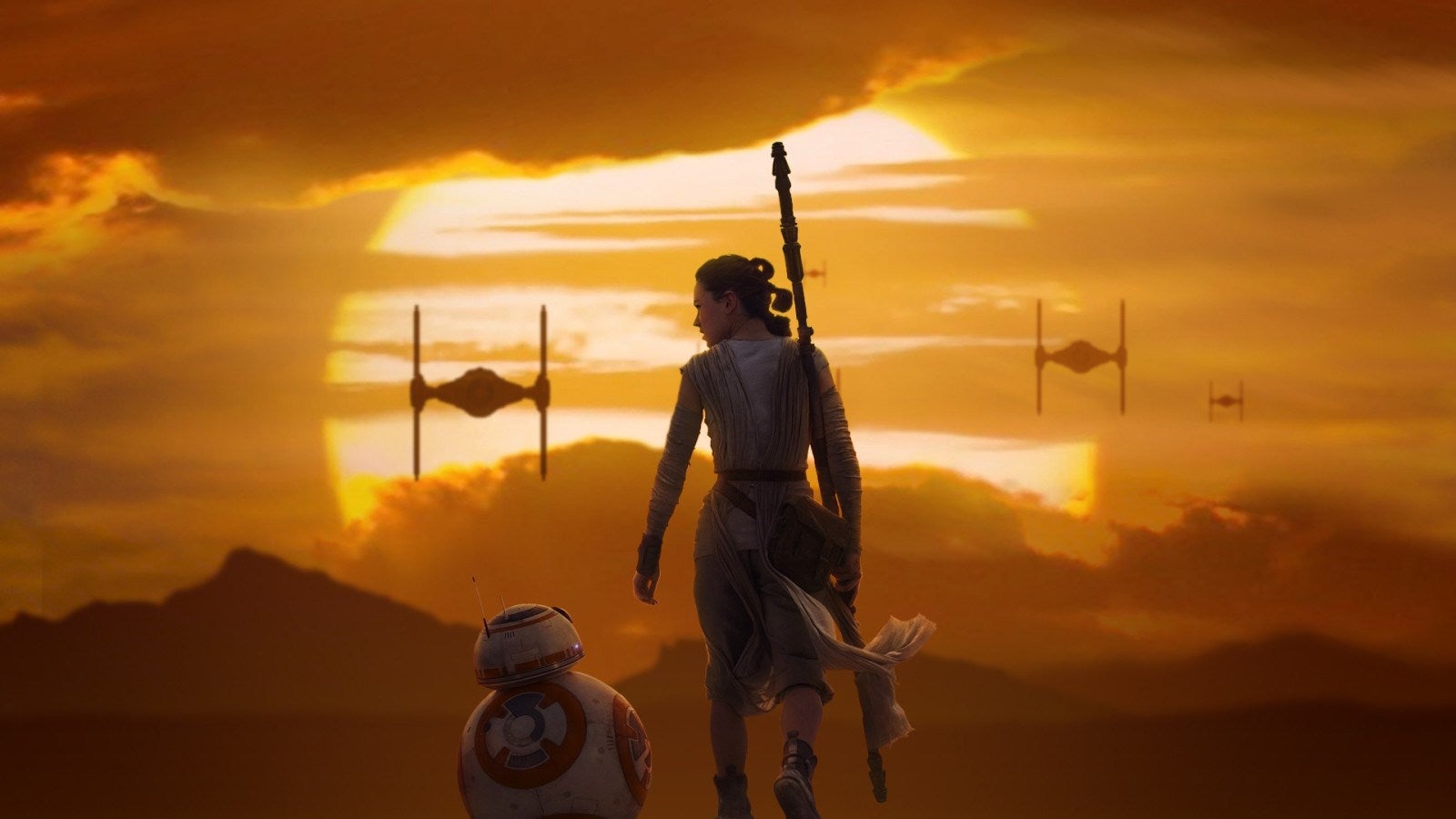
Did you ever feel that - looking back to the old SW films - you were ever trying to match their tone?
MJ: In tone, we did share some of the tonal elements with the first film. But it was a bit different as well. Audiences have changed since then - tastes have somewhat changed since then - and we did have the mix of humour and adventure, and we did try and keep some of the wise-cracking quality say Han Solo has in the first SW movies. Also, the sassy quality of Princess Leia, but I do think they have their own tone as well. It’s a bit darker than the first movie was. It is almost an element of camp. Help me Maryann!
MB: I think it has a more emotional depth than the first couple or the first one. The characters are more complicated, their issues are more current. John Boyega, the Finn character, he’s a black stormtrooper who decides to leave his regiment. It is not simple, its complicated. Thats what JJ did, he made the film much more accessible and much more interesting, which is why it appealed to a whole slew of people who weren’t SW fans, which is to his credit. I remember he kept saying to us “if Finn’s deception could inspire anybody to not follow a path in life they don’t want to follow, but they’re just too afraid to, I hope that inspires.” It was really well thought through.
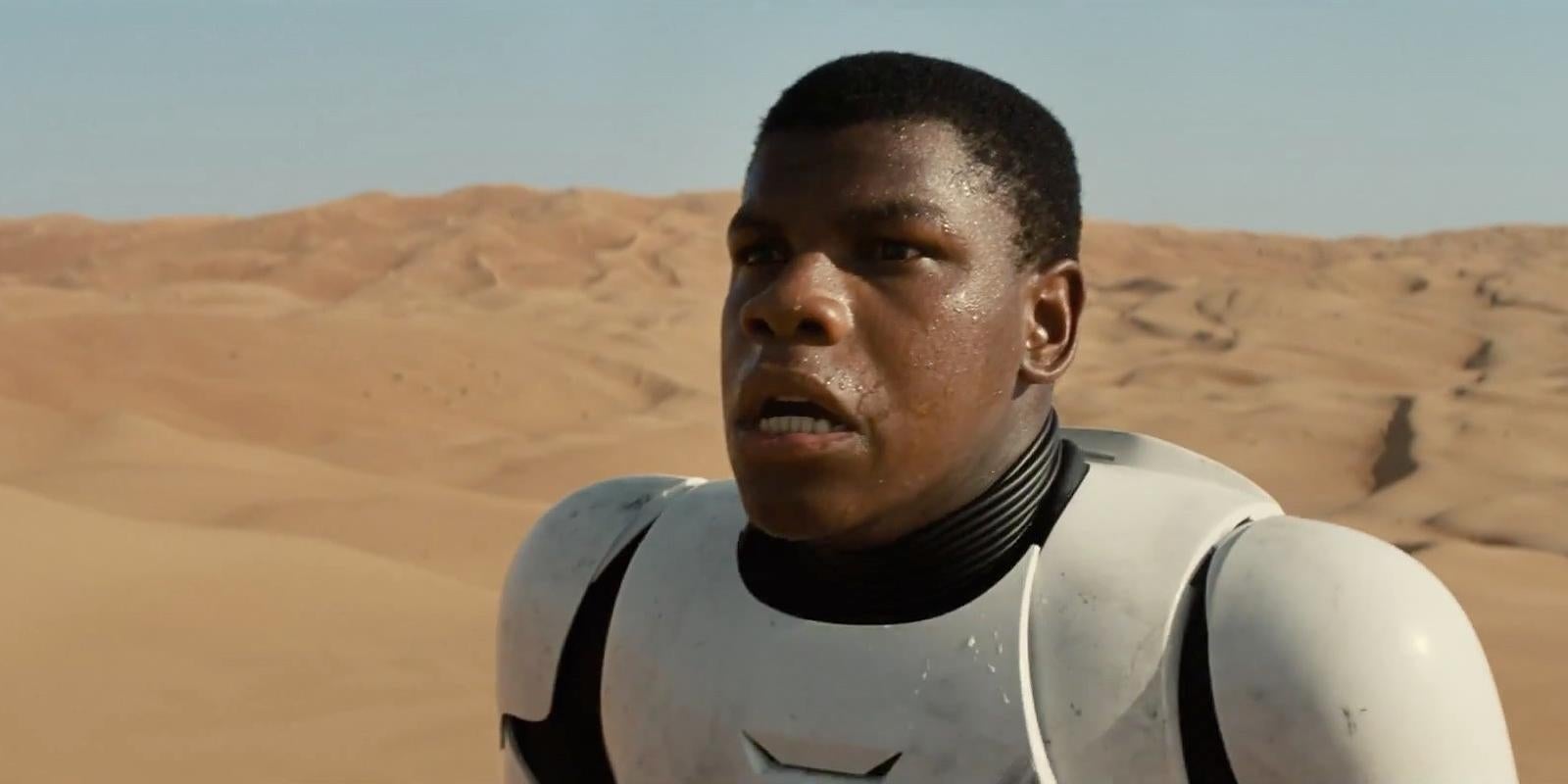
You must have had similar aspirations for Rey?
MJ: Oh my God, yes. She’s a shining example of a girl, left alone, who could have collapsed. But instead, she becomes this incredible person. She doesn’t know what she should and shouldn’t do, she just did it. She does what she needs to do the whole time. She’s using the force the whole time, she just doesn’t know it.
MB: They have deeper emotional crises to face than the original characters did.
Was there anything you left on the cutting room floor you wished could have made the film?
MB: I honestly think that what is in the film is perfectly what needs to be in the film, and what isn’t remains fun but not necessary. JJ really wanted it to be a two hour movie, and we did strive to do that, but then at a certain point, we felt like the film is really working for the very few people that we were able to show it to. And so we went back to see if we should add any of the things we left off, and there really wasn’t anything that felt like it needed to be in the film. That’s always the goal, to get it down to its essence. There were fun things, but it didn’t actually have to be in the movie for it to work.
Are there any of those ‘fun things’ left out you can tell me about?
MB: We have been talking about that, but Disney has mentioned to us that since they’re going to be on the DVD treats for viewers, that we should stop talking about them.
That’s great Disney are letting deleted scenes be released. There must be quite a few.
MB: No, there aren’t a lot. There’s one with Harrison Ford, there’s one with Rey, but there aren’t a lot.
MJ: I think there are maybe seven or eight, I don’t know if that’s a lot. I remember looking at the reel. Actually, I think there are seven!
In the novelisation, there’s one point where a voice from the Dark side whispers to Rey, telling her to kill Kylo Ren. Was that voice ever in the film?
MB: No, I don’t think so. Maybe a conflict in her head. In the novelisation they have a lot more leeway with what can happen.
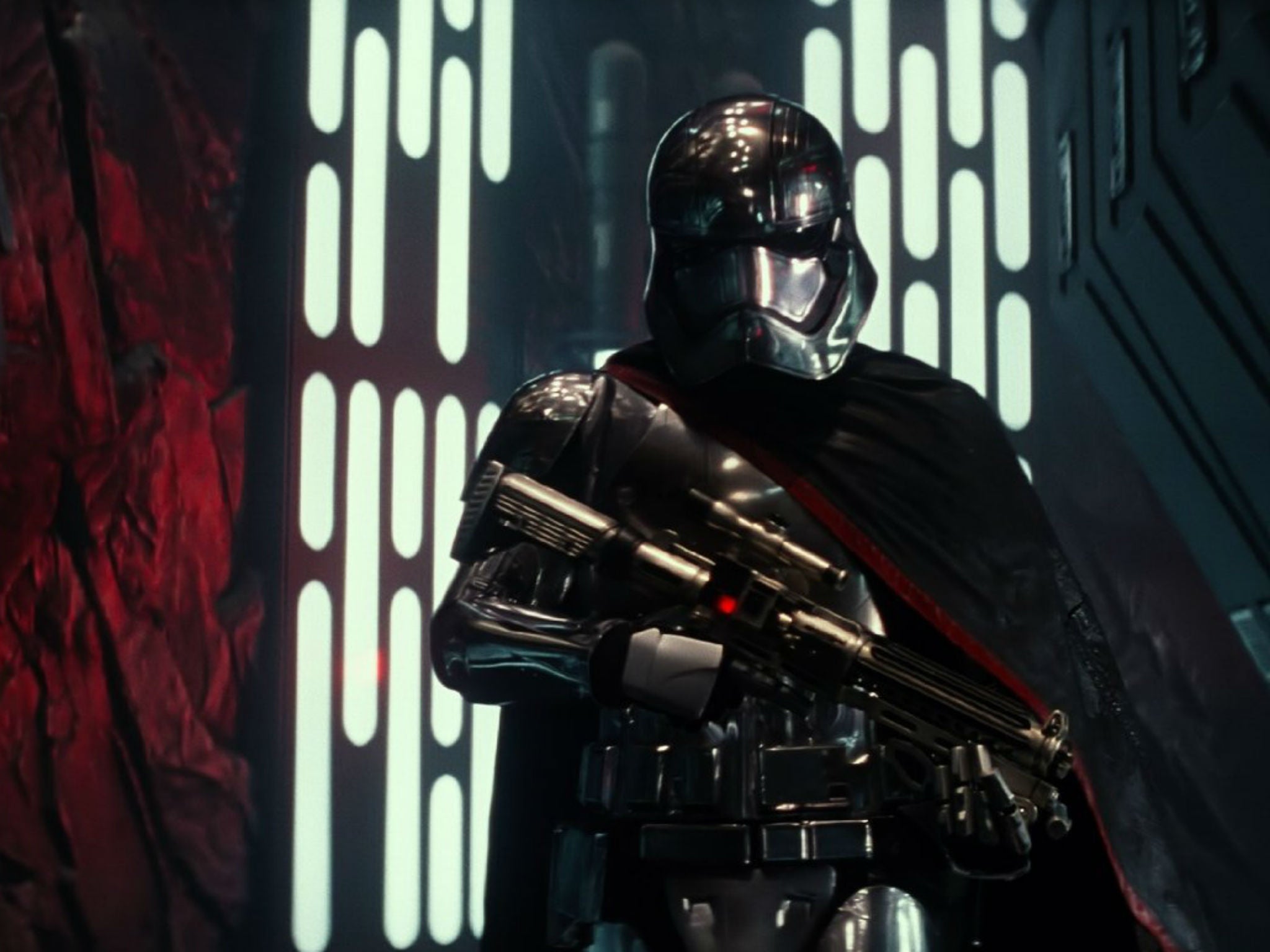
Which was the hardest scene to get right?
MB: For me, it was the scene where Rey touches the lightsaber and she goes into this fantasy, and she hears the Dark side and the light side, and she sees images of Luke and Ren, and herself as a kid. Because it was so surreal, and just imagined. We basically started from scratch in the cutting room and filled that scene out, and had to find a way in. Those kind of scenes are always very hard.
MJ: I had a couple that were challenging. One was the first scenes in that little hut between Poe and the Max Von Sydow character, Lor San Tekka. Because it was the first scene and we wanted to establish what kind of a character Poe is. There was also the question of how long it should be, how much they should talk about, how sure we should be of what’s in that little drive, that little mechanism. Should Poe be a wise guy in that scene? Or should he just be serious? It just took us a long time to find out how long the scene should be before we cut to the ships landing and the troopers storming the village because it just seemed difficult to get that right.
The other one I would say is at the very end of the movie, when BB-8 puts the partial map together with R2s. It was hard to figure out when to reveal he actually has access to the map, to this archive, and how much the audience needs to understand, or can we just put the two pieces of the map together and get on with it. You don’t really want a long exposition scene there, and what had been written there was a long exposition scene. It doesn’t feel like the audience wants that there, they just want to get on with finding Luke. That was a major re-think, how can we do this? How much does the audience care about perfectly understanding how these two pieces come together? How can we just get on with it? Nothing was easy, it was all perfectly shot - not hard to pull together - but to decide what the essence of the scene is, none of its easy.
One of the hardest scenes to cut looks like it may have been that last scene between Luke and Rey.
MJ: That wasn’t actually that difficult. I can see why you would think that, but I had a lot of climbing shots, I picked the most beautiful ones, I put them in. JJ asked me to add one more to make it feel longer, with that dissolve that suggests a greater passage of time. And, I think often actors performances tell you how long to stay on their face. They’re doing something and you’re seeing these things pass over their faces, and then when the transitions happen in their eyes stop, you know you’re ready to move on. It just didn’t seem that difficult how long to hold. The only thing that was a big issue about that was deciding whether to end on Luke’s face, on Rey’s face or on the wide shot that ultimately we did end on.
MB: I think also, as an editor, you know you’ve got the rhythm right when the composer just slides in their rhythmically and that music just slides in there so well. It all kind of gelled.
The prequels got a lot of negative press for overusing CGI. Was there a general feeling of needing to keep it more organic?
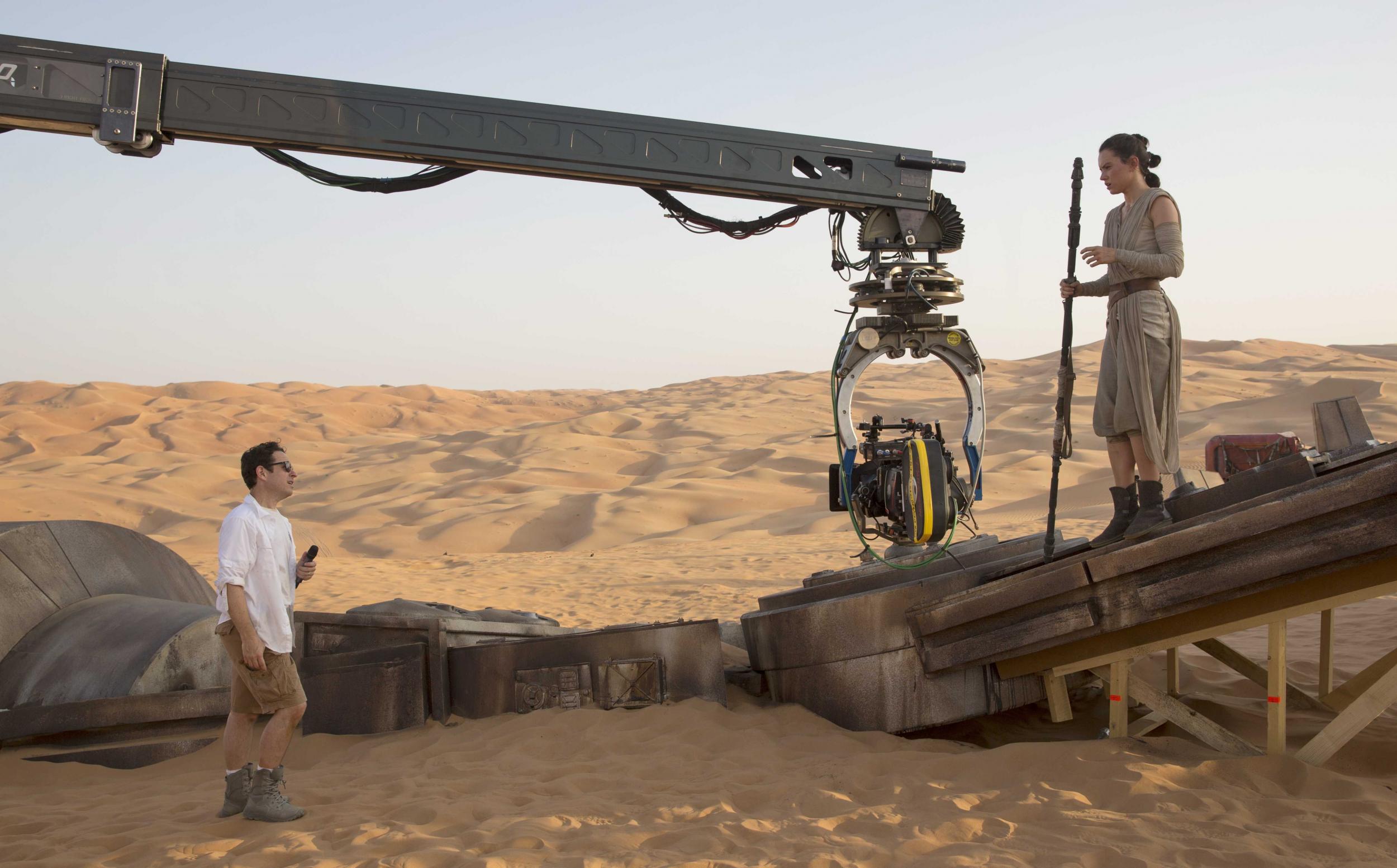
MB: Definitely. I think JJ goes to great lengths to make it so organic. Exteriors, he shoots in real life, in real situations. He also talks about the more real elements you can have in something, the better it is as a starting point. Camera angles and light and shadows, like that Falcon scene - where Rey is in the cockpit and Finn underneath shooting - that was all shut outdoors. The Falcon, the cockpit, it's all real. The sun is moving, they’re on a gimbal, moving back and fourth, same with Finn, same with the Stormtroopers. It’s very important you have as many organic elements as possible, and he’s done it in all his films.
It says on your Wikipedia pages - that great source of all knowledge - that you were both shocked by JJ’s use of lens flares on Star Trek. Were there any confusing moments when working on SW?
MB: That was only the first day of dailies on Star Trek because we hadn’t been warned they were artistic choices. There were these soft flares that kept rolling over the scenes. I don’t think there were many on Star Wars.
MJ: He’s done it once before, and he feels like that is over. SW doesn’t really lend itself to lens flare’s like Star Trek, it is more wipes. He told us early on we weren’t going to get lens flares. I think he wants to put it to rest.
You are both nominated for an Oscar, and this year there has been a lot of debate surrounding diversity among the actors. How do you feel about diversity behind the camera?
MB: I think it is opening up. All crafts and all things in film are opening up. Let me say filmmaking has a long way to go, but in the cutting room, we’re colour blind, diversity blind. We just get the footage, we try not to get attached to how it was shot or who shot it or what it means to anyone, I try to take an objective stance on the film I’m getting. Of course, it is a huge subject and issue, but it is a giant question to tackle, really.
MJ: I do think that it is a problem, not just for women but for people of colour as well. One thing I would point out is that JJ always makes a serious effort towards diversity casting, and always has. Going back to the TV series we all did together, I do think he takes it very, very seriously. Just in general, I still think it is an issue. It is getting better but there’s still a long way to go.
MJ: I think maybe, after what happened this year, perhaps people are going to be more aware of it.
MB: I think maybe Steven Spielberg, people like Steven and JJ are very aware and have influence, and hopefully it will spread.
Join our commenting forum
Join thought-provoking conversations, follow other Independent readers and see their replies
Comments